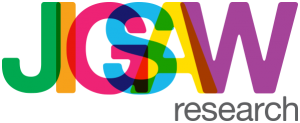Having spent 15 years funding in international development, Hugh Davidson is perplexed by why so few successful pilot programs are brought to scale. Part of the answer appears that they are developed from offices in the North while voices in the South are too little heard. This article describes a study to develop a long-term programme to address this quandary.
1. Who are we?
We are a smallish family Trust. Our objective is to dramatically increase income & empowerment of very poor women and their families. To date we have worked mainly in east India and north Bangladesh but also in Vietnam and Ghana.

Our approach is – to work with local communities on innovative/higher risk pilot programs lasting five years or more, funded via 50/50 partnerships with two leading international NGOs. When they succeed, we aim to get bigger organisations to scale them.
Eight pilot programmes have been completed. Two failed, six succeeded, and two of these have been scaled by state or national Governments. Disappointingly, neither of our two largest programs have yet been scaled, despite their proven success in almost trebling both real income of 11,000 women and their families, and most of the women’s empowerment measures we used.
We have also seen many successful programs operated by others but not scaled.
We therefore decided to fund a global research program to identify the key barriers to scaling, and how to overcome them. This would guide us on future strategy for the next ten years, and hopefully also be of value to the international development sector. Focus would be Women’s Economic & Social Empowerment.
2. Our partners and plan
We approached Alliance Magazine, since we were both not-for-profit entities, and have similar values. We are now in our second year of successful partnership.

Advised by Alliance, we invited Barry Knight to carry out the ‘Landscaping’ and to provide expert advice. We also conducted a competitive tender and selected Jigsaw Research, the UK Market Research Society’s ‘Global Agency of the Year, 2019’. The research program is being led by Jigsaw CEO, Sue Van Meeteren, a descendant of Mrs Pankhurst, the famous early campaigner for Women’s Rights.
The research programme comprises five elements, as follows:
- ‘Landscaping’. This would include an extensive Literature Search so that we capitalised on existing knowledge and did not ‘re-invent the wheel’.
- Qualitative Stage. In depth interviews with about 50 key funders, INGOs, opinion formers, grass roots organisations, activists, local NGOs, with emphasis on Women of Colour from the Global South and ‘Doers’ on the front line. This would guide us on the best questions to ask in the next Stage.
- Quantitative Stage. he questionnaire would be published by Alliance magazine with all its readers invited to complete it
- Final ‘Tidying Up’. Further in depth qualitative interviews to clarify any unclear issues.
- Publication of Report, promotion and follow up. We see this as a 5 to 10 year program. Our research is merely the first step.
We have now almost completed the Qualitative Stage and are very grateful to those who were interviewed.
3. Barry Knight widened our horizons
 Barry has a distinguished record of achievement in international development, including co-founding #ShiftThePower. His wide ranging Report reviewed the history of scaling from 1945, examined its various phases, and traced more recent developments such as the rise of systems thinking, and community philanthropy. He also tracked the growing importance of women’s empowerment in his 54 page Report.
Barry has a distinguished record of achievement in international development, including co-founding #ShiftThePower. His wide ranging Report reviewed the history of scaling from 1945, examined its various phases, and traced more recent developments such as the rise of systems thinking, and community philanthropy. He also tracked the growing importance of women’s empowerment in his 54 page Report.
Influenced by this Report, our Trustees widened the program objectives beyond scaling, to include ‘Equal Voices’, and how best to reshape power structures between funders and ‘Doers’ on the front line.
4. What we have learned so far
We are still at the Qualitative stage of the Research. These initial results need to be viewed with caution, and the Quantitative Stage, starting at the end of August with a large base of Alliance readers, will be more authoritative. Findings to date will guide us on themes and questions to be followed up in the ‘Quanti’ Stage.
Scaling was defined in a variety of ways. It was not necessarily about growth, and could include sustainability and impact. The phrase ‘Scaling Up’ can jar – it’s associated with the private sector. For some, ‘scaling’ suggests a top down rather than a grass roots approach.
Women’s empowerment included a wide range of approaches, with a focus on systemic change. Key elements were holistic approaches – changing legislation, supporting the Women’s Movement, facilitating women in leadership roles, funding organisations rather than projects.
Amplifying the ’voice of the girl or woman’ was seen as a powerful catalyst, & made politicians and governments take notice.
Devolution & localization was a growing trend, bringing power and decision-making as close as possible to the front line. However, some local organizations based in cities may be remote from the rural communities they serve.
Scalers. Governments are often the scalers of choice. They have resources, people, and can create lasting change. Scaling is achieved by aligning with policies, getting governments to listen to poorer and more vulnerable people, & offering cost effective solutions. But governments are hard to work with – ministries often siloed, personnel & policies changing, compliance time consuming & bureaucracy burdensome.
Funding challenges. Funders are often major barriers to scaling. There is a sense of frustration – the field has innovations and ideas, but funding can be a barrier to realising benefits. See below.
Project based approach. Its effectiveness is often questioned – too short term, limited in scope, rarely achieves lasting change. Often designed in North & imposed on Global South, with little understanding of the biggest local needs (the opposite of good marketing). It’s more effective to support local organisations than time-limited projects.
Slow progress is being made towards a less restrictive mindset. To be effective, unrestricted funding needs emphasis on up-front due diligence; lively discussion and agreement on values, objectives, strategies, and metrics; then backing the local organisation to implement.
Covid is accelerating the need to find new funding models. There needs to be a move from top down to bottom up. Helping smaller local organisations manage growth is a key to scaling.
Collaboration. Intermediary organisations in the Global South are playing a key role as catalyst & facilitator, convening networks & communities of practice, and acting as expert conduits between the West and the Global South. But many barriers to collaboration were observed.
– Trust was a critical enabler of Collaboration, & enables funders to be less controlling of NGOs, underpinned by common values and strong initial due diligence.
– Knowledge sharing of practice was a key part of effective collaboration, but there was need for improvement. The West especially needs to improve, & has much to learn from the front line.
5. Next steps – need to simplify
Our Trustees have agreed with Jigsaw Research that in the next Quantitative Stage, we will focus and simplify more.
The Qualitative interviews were wide ranging and included valuable input outside the scope of our research objectives. Topics like the future of INGOs, weak measurement systems, insufficient information & knowledge sharing. We will ‘park’ these important topics for the time being.
We decided to reduce the eight Themes identified by Jigsaw to four, as follows:
- Unlocking funding. This will cover unrestricted funding and making grants to local organisations rather than projects.
- Equal voices. This combines three of Jigsaw’s Themes – ‘Amplifying the Voice of the Community’, ‘Devolving & Localising’, and Redefining Roles between North & South.
- Scaling
- Investing in collaboration.
We have already developed 15 to 20 possible actions. The Quantitative Stage will enable us to test the strength of each of these through questions, and to identify those with the most potential. We are determined that this Research Study will provide some clear and actionable solutions.
6. Expected use of research results
This Research is designed as a first step in a five to ten year program to identify winning initiatives and organisations worthy of scaling; get them scaled & improve the scaling process; and to help achieve a more effective and equitable balance of power between funders in the North and ‘Doers’ on the front line.
We recognise that others bigger and smarter than us have been grappling with these issues for decades, but aim to make a contribution to tackling them.
This research will be widely disseminated to help inform the whole global sector and will shape the H&S Davidson Trust’s future strategy. This is likely to include funding organisations rather than projects, commitment to Equal Voices, and much greater collaboration with others.
7. How you can help us.
Alliance Magazine will be publishing our Quantitative Questionnaire later this month. We very much hope you will help us by completing it. Make sure you are signed up to receive all updates.
By Hugh Davidson MBE, MA.Chair, H & S Davidson Trust. Hugh Davidson has worked full time as unpaid volunteer and funder since 2005. He has written many articles and books, including ‘The Committed Enterprise – How to Make Vision, Values and Branding Work’.






Comments (2)
Sikshasandhan was supported by Huge Davidson trust through Oxmam India. It was an amazing journey . We would like work with them if opportunity comes.
Hi, Is the literature review on scaling up available? Jason